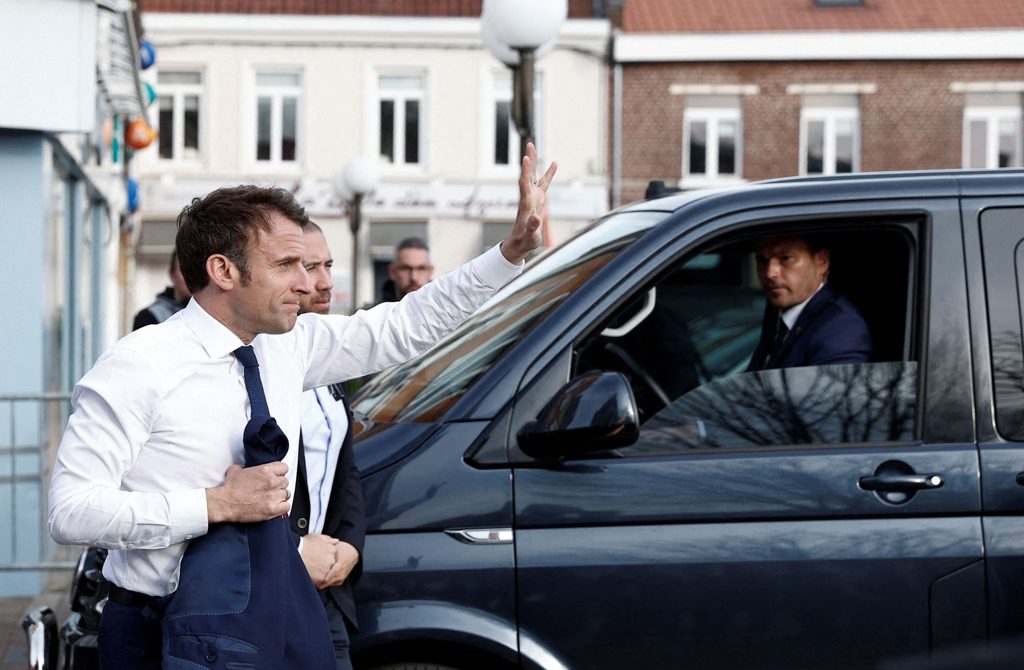The first round of the French presidential elections, which was held on April 10, 2022, has shown us that nothing has changed on the Western front. According to the election results, no candidate has secured an absolute majority of votes, that is, 50% of the total votes. The results were a repeat of the same elections five years ago, after which the incumbent President Emmanuel Macron became president against his opponent Marine Le Pen. The second round of the elections will be held on April 24 between the two rivals, the top two candidates who received the most votes. That is, Macron and Le Pen are set one more time for battle for the presidency. Macron has secured 27.6% of the vote. Thus, compared with 24% in the first round of the 2017 elections, he has increased his votes. On the other hand, similar to Macron, Le Pen won 23.4% of the vote, also increasing her votes. We will see whether history will repeat itself and Macron will defeat Le Pen one more time. It is projected that it will be a tight second round. It’s also important to note that no French president has won reelection since the 2002 presidential elections.
In this article, I will list some inferences regarding the results of the elections. The first and the most important result of the elections is the collapse of mainstream political parties in France. Both center-right and center-left political parties have received very low rates. While the center-right liberal-conservative party, The Republicans, received 4.78%, the center-left social-democratic party, the Socialist Party (PS), secured only 1.75% of the total votes. In other words, the traditional mainstream political parties have received only 6.53% of the total votes.
Either far-right or far-left
The first four candidates with the most votes in the elections represent either far-right or far-left. Taking into consideration the anti-migration and anti-Muslim policies of the Macron administration, the views of some of his ministers such as Interior Minister Gerald Darmanin, and especially the hate speeches made by Macron himself against Islam and Muslims, he can also be described as a far-right politician. Macron and Le Pen have destroyed the traditional right-left divide in France and polarized the French political spectrum. The far-rightist politician Eric Zemmour came fourth in the elections with 7% of the vote. Taking this together with the votes received by Macron and Le Pen, the votes received by the far-right reach almost 60%.
On the other hand, the radical left has increased its votes in the elections too. Jean-Luc Melenchon, the leader of the La France Insoumise, received 21.9% of the vote and has just missed the cutoff for the second round. Taken together with 4% of the vote gained by the communist parties, the votes of the French far-left parties reach almost 26%. The results show that French socialism is dead. The PS, the main political tradition in support of multiculturalism and peaceful coexistence, has received a catastrophic result in the elections, with just 1.7% of the votes. Its representative Anne Hidalgo finished 10th out of 12 candidates.
Thus, more than 80% of the total votes were secured by radical right or left political parties. This demonstrates the dangerous polarization of the French state and society. The moderate political parties have continued to lose ground. The far-right and far-left political parties have become the new mainstream political parties and the new normal of the country. Although there are many differences between Macron and Le Pen, they share similar positions on many critical issues in the domestic and foreign policy of the country. For instance, Macron has described NATO as “brain dead,” warned its European partners that they could no longer rely on the United States, and called the European Union to increase its military power and establish its own security architecture. Similarly, Le Pen has reservations about the trans-Atlantic alliance. Both politicians follow an anti-Islamic and anti-migration policy. Therefore, Melenchon has told his constituency not to vote for the far-right, but he could not lead his supporters to vote for Macron either. It is no secret that the majority of the left does not want to vote for Macron, since they reject Macron’s policies.
Bad news!
It seems that right-wing populism will continue to influence the European and Western political domain in the near future. Mainstream political parties do not meet the expectations of the general public anymore. Therefore, the fear of far-right politics continues to move the main ground of European politics to the poles, to the radical left and radical right. The specter of radical political parties, especially far-rightist and xenophobic political actors, will continue to haunt European politics.



